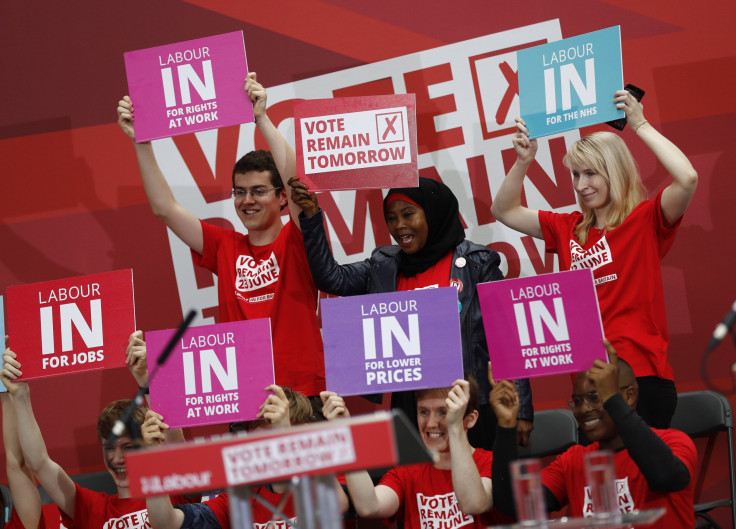Nazis, Snakes, Migrants, Muslims and Jo Cox: The Nasty Brexit Campaign Attacks Driving British Referendum Vote

With less than 24 hours before voters head to the polls to decide if Britain will remain in the European Union, the debate grew even more toxic Wednesday with a Nazi comparison thrown into a campaign that has been full of mudslinging and name-calling.
Michael Gove, co-chairman of the Vote Leave campaign, said economic experts who have argued that a Brexit would damage the British economy and hurt global financial markets could not be trusted. He compared them to Nazis who smeared scientist Albert Einstein in the 1930s. Gove also criticized the euro single currency market, which Britain never entered keeping the pound instead, and critiqued the EU project.
“We have to be careful about historical comparisons, but Albert Einstein during the 1930s was denounced by the German authorities for being wrong, and his theories were denounced, and one of the reasons of course he was denounced was because he was Jewish,” Gove said in an interview with LBC Radio. “The truth is that if you look at the quality of the analysis, if you look at the facts on the ground, you can come to an appropriate conclusion … with the nature of the single currency so damaging, freeing ourselves from that project can only strengthen our economy.”
Gove’s comments were immediately criticized, and he has since apologized for making “clumsy and inappropriate” comments. The remarks, however, are just the latest in what has been a heated and oftentimes controversial campaign that has focused on economic and political issues affecting the entire 28-member EU.
A “leave” campaign poster showing a long line of refugees and migrants with the text “breaking point” drew condemnation. Gove said the poster made him “shudder” and was “the wrong thing to do.” That campaign has argued a British exit would allow for more control over the country’s immigration policy.
Other examples of controversial campaign materials include a video shared in May by a “leave” Facebook group showing U.S. presidential candidate Donald Trump describing immigrants as snakes and a cartoon tweeted out by the “leave” campaign in June showing stereotypical depictions of Muslims and European nations.
The “remain” camp hasn’t escaped criticism either. The “leave” side criticized “remain” campaigners last week after making remarks linking the killing of member of Parliament Jo Cox to the referendum. Cox was killed after meeting with constituents, and the man who shot and stabbed her allegedly shouted “Britain first.”
“I think there are Remain camp supporters out there who are using this to try to give the impression that this isolated, horrific incident is somehow linked to arguments that have been made by myself or Michael Gove or anybody else in this campaign, and frankly that is wrong,” U.K. Independence leader Nigel Farage said during a radio interview, according to the BBC.
Results of the referendum are expected early Friday local time.
© Copyright IBTimes 2025. All rights reserved.






















